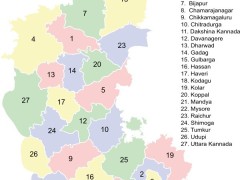complete [kəmˈpliːt] v. 完成
【派】completely 完全地
【例】I have completed the work ahead of schedule.
我提前完成了这个项目。
【扩】finish 完成
modern [ˈmɔdən] adj. 新式的,与以往不同的
【派】modernize 使……现代化
【例】Modern furniture design tends to be simple. 现代家具设计越来越简单。
【扩】new-style 新式的
strange [streindʒ] adj. 奇怪的
【派】stranger 陌生人
【搭】be strange at 对……显得外行
* * *
A: This dish tastes strange.
B: Sorry. Would you like me to change it for you?
A:这道菜味道很怪。
B:对不起,我给你换吧。
* * *
district [ˈdistrikt] n. 地区
【扩】area 区域,地区
【搭】financial district 金融区
* * *
A: Is there any places of interest here?
B: If you are interested in seeing the modern side of the city, you could have a look at the Central Business Districts and do some pleasant shopping.
A:这儿有什么有意思的地方吗?
B:如果您对这座城市现代化一面感兴趣,可以去中央商务区一带看看,体验购物乐趣。
adjective [原级]完全的,彻底的;全部的,完整的;完成的,结束的;技能全面的,技术娴熟的;向前传球成功的 - The house is a complete mess.
verb [vi. 不及物动词]使完整,使完美;填写(表格);完成,结束 - If you complete something, you finish doing, making, or producing it.
① vt. 完成,结束
- complete the building
- Work on the new school will be completed next year.
② adj. 完整的,全部的
《鲁迅全集》中的 “全集” 就用 “complete”
- Do you know the complete story? This is a complete family.
③ adj. 十足的,彻底的,绝对的
- There is complete silence in the room.
- That was a complete surprise.
adjective [原级]近代的,现代的;当代风格的,现代派的;现代化的,新式的;摩登的,时髦的 - He collects modern sculpture.
noun [专属名词]现代人;现代派艺术家;主张现代风格的人,宣扬现代价值观的人 - She is very modern in outlook.
adjective [原级]奇怪的,不寻常的;陌生的,不熟悉的;令人局促不安的,令人不自在的,令人难受的;(亚原子粒子)有奇异性非零值的,奇异性的 - A strange place is one that you have never been to before. A strange person is someone that you have never met before.
adverb [疑问副词]奇怪地,不寻常地 - She noticed he was acting strangely.
① adj. 外地的,异乡的
- Living in a strange land is not always a pleasant thing.
② adj. 陌生的,生疏的
- That morning, he saw a strange face in the classroom.
be strange to sth. 对……不习惯, 对……陌生
- This city is quite strange to me.
③ adj. 不平常的,奇特的,奇怪的,古怪的
- The house looks strange to some people.
- A strange thing happened this afternoon.
noun [专属名词]地区,区域;行政区,辖区;<英>(郡或区以下的)选区 - I drove around the business district.
verb [vi. 不及物动词]<美>把…划分成区 - It is bringing the case to the local district court.
district n. 地区,行政区,地域,地带,通常隶属于某个整体或具有某些地理特征
- Haidian District 北京的海淀区
- The Lake District of Northern England is very beautiful. 英国北部的湖区非常美丽。



